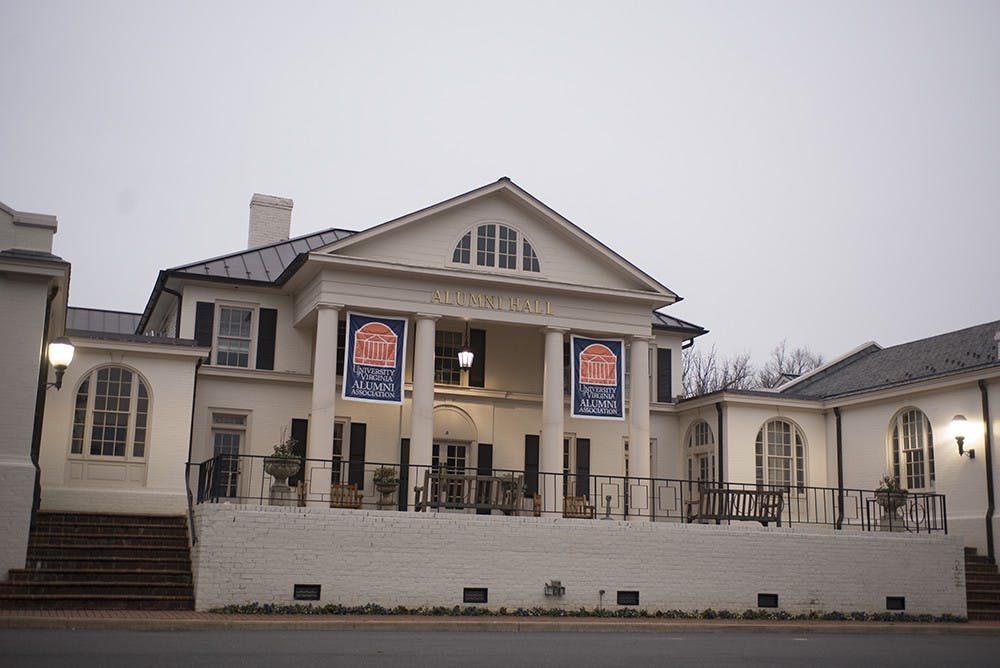National sorority presidents requested National Panhellenic Conference sororities with University charters refrain from participating in the 2015 Boys Bid Night last Saturday in a move which generated discontent and confusion from alumni and sorority members.
To adhere to the ban, sorority chapters were largely required to schedule mandatory social events or meetings for new pledges and members in place of organized bid night activities. Despite overall compliance, many students and alumni pushed back against the new restrictions and vocalized their opposition.
Class of 2014 College alumnus Jake Berman, former president of Pi Lambda Phi fraternity, said he was entirely opposed to the ban.
“I think the ban does two things: the most important is that it takes away the freedom of the women within the sororities,” Berman said. “It also puts fraternities in a bad light — [it] makes it seem like all fraternity men are unfit to be around sorority girls.”
Berman said that following the University’s controversial fall semester — during which Rolling Stone published an article, now discredited, describing a gang rape by Phi Kappa Psi fraternity brothers in fall 2012 — the ban only perpetuated the false image of the University and its Greek organizations as unsafe environments for women.
“This ban on going out is spurred from the Rolling Stone incident,” Berman said. “I think it’s ridiculous to think that the entire University population of women is unsafe around the Greek population of men at the University.”
Berman also took issue with the decision because he believed it did not provide students agency.
“I think that on the national level, it really makes it seem like students at the University are not allowed to make their own choices,” Berman said. “It makes fraternity men at the University seem dangerous.”
Berman’s stance echoes many of the protests and complaints on Grounds.
In a letter dated Jan. 31, more than 60 alumni of the Alpha Delta Pi sorority addressed a letter to Tammie Pinkston, international president of Alpha Delta Pi, arguing that while the concern for safety is valid, the ban marks a violation of individual rights.
“We fail to see how [the ban] can possibly address the actual problem of sexual assault,” the letter read. “Sexual assault occurs at every single university, at parties and outside parties, to Greek women and to non-Greek women. These women are adults and their self-judgment should be trusted.”
The alumni said that decisions coming from a national level — such as this one — make women involved in Greek life feel infantilized rather than empowered and safe.
“We realize most of us have not set foot on Rugby Road in many years and things have changed, as they always do,” the letter read. “If there are particular facets of sorority participation in [Boy’s] Bid Night at only [the University] that are disturbing to the NPC member Presidents, perhaps those facets should have been addressed specifically.”
Class of 2014 College alumnus Katie McCafferty said that the responsibility for making Boys Bid Night a safe event should lie with both fraternities and sororities.
“[The National Chapters] do seem like they have the girls’ best interest at heart, but I also think that the fraternities need to step up a little bit too,” McCafferty said. “The national fraternity chapters should be the ones sending out a letter, even just something informal requesting to take it easy this year at Boys Bid [Night].”
McCafferty, like Berman, agreed that safety should be a top concern for sororities and fraternities alike, but that the ban is not the most effective way to achieve this goal.
“It’s just a very complex problem,” McCafferty said of safety on Grounds. “I don’t think there’s a very easy answer.”







